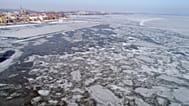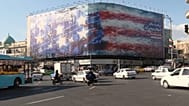The bombing on the evening of Sept. 26, 1980, claimed 13 lives and injured more than 200 people.
Germany's president warned that far-right terrorism remains a problem in the country as he marked 40 years since a neo-Nazi attack on Munich's Oktoberfest.
"Right-wing extremism has deep roots in our society," said German President Frank-Walter Steinmeier at a memorial event in Munich on Saturday.
Thirteen lives were claimed in the bombing on September 26, 1980, and more than 200 people were injured.
"Let's keep the memory of Munich alive - including the mistakes that have been made. Only those who know their mistakes will be able to correct them," Steinmeier added, according to German media reports.
Investigators first said that the student who perpetrated the bombing, Gundolf Köhler, had personal motives for the attack even though he had trained with a neo-Nazi militia.
The investigation was later reopened and in July 2020 prosecutors came to the conclusion that the perpetrator was motivated by far-right extremism.
Germany has seen a number of attacks driven by anti-Semitism and far-right ideology in recent years.
In February, a far-right extremist committed a mass shooting, killing nine people at two shisha bars in Hanau. And in October of last year, a far-right extremist attempted to enter a synagogue in Halle, killing two people and broadcasting the attack online.
Steinmeier said that these far-right perpetrators were not "disturbed" but rather were part of "networks" needed to be investigated.
Germany has moved to ban several of these far-right groups recently. In June, police carried out raids in four federal states after the government banned a neo-Nazi group.















